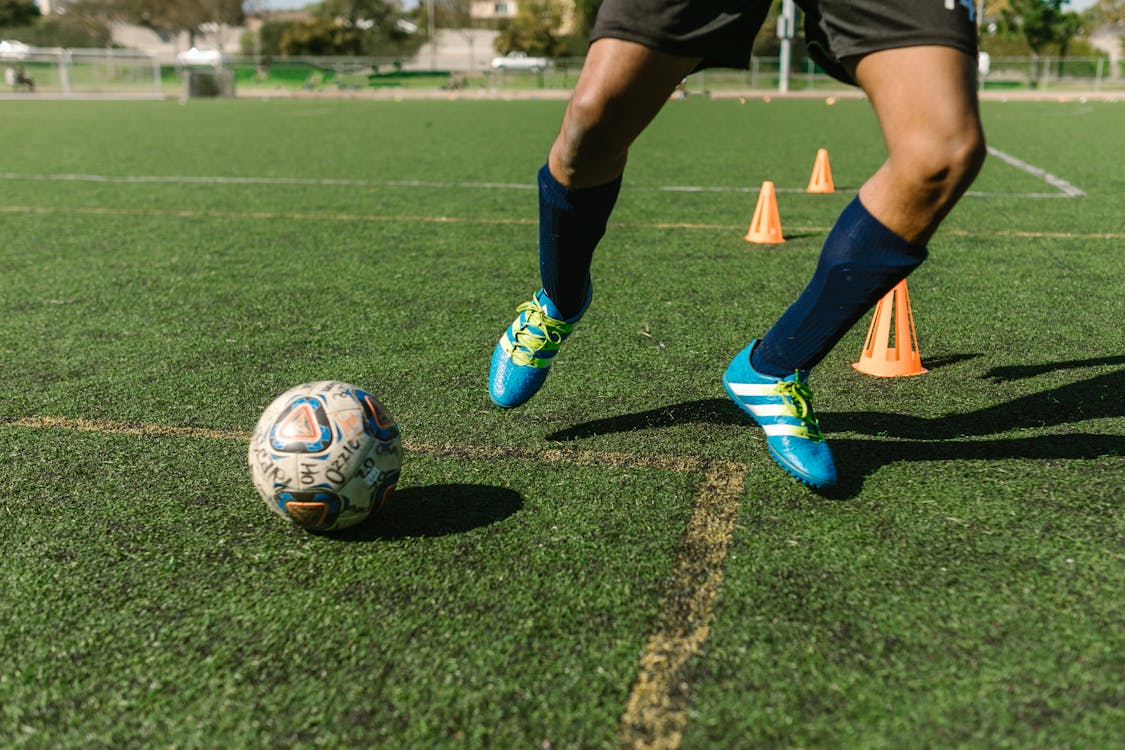The Benefits of Kids’ Football Training for Future Stars
The Benefits of Kids’ Football Training for Future Stars
Football, known as soccer in some countries, is more than just a game; it’s a sport that teaches valuable life skills and provides numerous physical, mental, and social benefits. For children aspiring to become future stars in the sport, football training is an invaluable investment. This article delves into the benefits of kids‘ football training and how it lays the groundwork for a successful journey in the world of football.

1. Physical Fitness and Health
One of the most significant benefits of football training for kids is the enhancement of physical fitness. Regular training sessions promote a healthy lifestyle by encouraging children to engage in physical activity. Here are some key aspects of how football contributes to fitness:
Cardiovascular Health: Football is a high-intensity sport that gets kids running, sprinting, and moving constantly. This helps improve cardiovascular health and stamina.
Strength and Agility: Training focuses on building muscle strength and improving agility through drills and exercises. Kids develop stronger leg muscles, which enhance their ability to run, jump, and maneuver on the field.
Coordination and Balance: Football requires good hand-eye and foot-eye coordination, which is cultivated through regular practice. Enhanced coordination and balance lead to better athletic performance in all sports.
2. Skill Development
Football training provides kids with the opportunity to learn and hone various skills essential for the game. These skills not only contribute to their performance on the field but also instill a sense of accomplishment:
Technical Skills: Players learn vital technical skills such as dribbling, passing, shooting, and defending. Mastering these skills forms the foundation of their football education.
Tactical Understanding: Training sessions help kids develop a tactical understanding of the game, including positioning, formations, and strategies. This knowledge enhances their ability to read the game and make intelligent decisions on the field.
Adaptability: Regular training encourages players to adapt to different game situations, making them more versatile athletes. This adaptability is crucial for success at higher levels of competition.
3. Mental Resilience
Football training is not just about physical preparation; it also plays a crucial role in developing mental resilience. Here’s how:
Discipline: Training requires commitment and dedication. Kids learn the importance of hard work, perseverance, and setting goals, which translates to other areas of their lives.
Focus and Concentration: Players must maintain focus during training and matches, which helps improve their concentration levels both on and off the field.
Handling Pressure: Football matches can be intense and competitive. Training prepares kids to cope with pressure, enabling them to perform at their best in high-stakes situations.
4. Social Skills and Teamwork
Participating in a football training program allows kids to engage with their peers, fostering social skills and teamwork:
Building Friendships: Training sessions and matches provide a platform for kids to make friends and develop relationships. This sense of camaraderie fosters a positive social environment.
Teamwork: Football is inherently a team sport that emphasizes the importance of working together. Kids learn how to collaborate, communicate, and support one another, essential skills in both sports and everyday life.
Sportsmanship: Training instills values of fair play and respect for others. Kids learn how to handle both victory and defeat gracefully, which builds character.
5. Confidence and Self-Esteem
Football training has a profound impact on a child’s self-esteem and confidence levels:
Skill Mastery: As children improve their skills and see tangible progress, their confidence grows. Mastering a challenging technique or performing well in a match boosts their self-esteem.
Recognition and Accomplishment: Participation in training and matches provides opportunities for recognition, whether through praise from coaches or acknowledgment from peers. Such validation reinforces a child’s sense of worth.
Overcoming Challenges: Football often presents challenges, whether it’s recovering from a loss or overcoming a personal setback. Navigating these challenges fosters resilience and self-belief.
6. Future Opportunities
For kids aspiring to pursue football at higher levels, training provides a pathway to future opportunities:
Scouting and Recruitment: Many academies have connections with professional clubs. Young players who excel in training may attract attention from scouts and coaches, opening doors for advancement.
Scholarships: Talented players may qualify for scholarships at schools or universities that offer football programs, providing access to education while pursuing their passion for the sport.
Lifelong Skills: The skills learned through football training—teamwork, discipline, leadership—are valuable in any career path. Kids who participate in sports often find that these qualities serve them well in their future endeavors.
Conclusion
In conclusion, the benefits of kids’ football training extend far beyond the game itself. From promoting physical health and skill development to fostering social skills and building confidence, football provides a holistic approach to youth development. For parents considering enrolling their children in a football training program, it is clear that the investment goes a long way in shaping future stars both on and off the field.
FAQs
1. At what age can my child start football training?
Children can start football training as early as 4 or 5 years old, depending on the program. Many academies offer age-appropriate training for young kids.
2. How often should my child train?
Typically, training sessions are held 1-3 times per week, depending on the academy. Consistency is key for skill development and physical fitness.
3. What should my child wear to training sessions?
Children should wear comfortable athletic clothing, shin guards, and appropriate footwear (cleats or trainers). It’s essential to ensure they’re dressed for safety and mobility.
4. Are there any health risks associated with youth football training?
Like any sport, there are risks, but they can be mitigated through proper training, hydration, and adherence to safety guidelines. Ensuring children are well-prepared can help prevent injuries.
5. How can I support my child’s football journey?
Support can come in various forms: encouraging practice at home, attending games, and fostering a positive mindset about competition and teamwork. Open communication about their experiences is also vital.
By investing in your child’s football training, you’re not only nurturing their love for the sport but also equipping them with skills and values that will last a lifetime.

